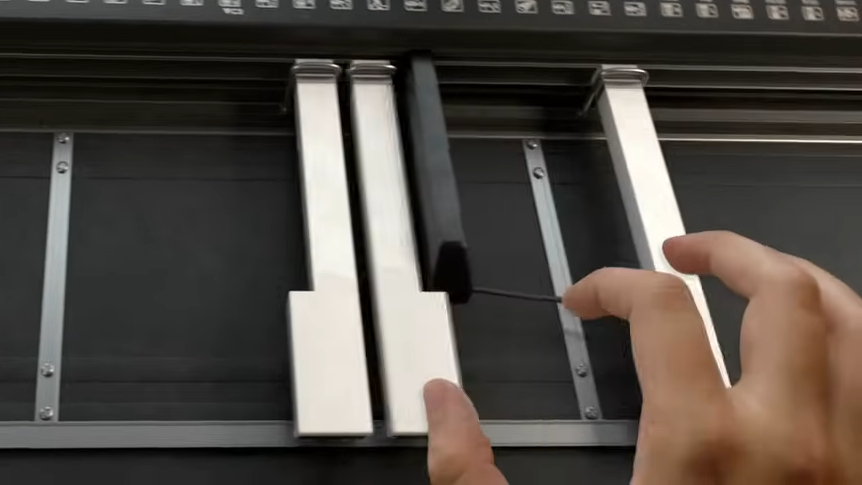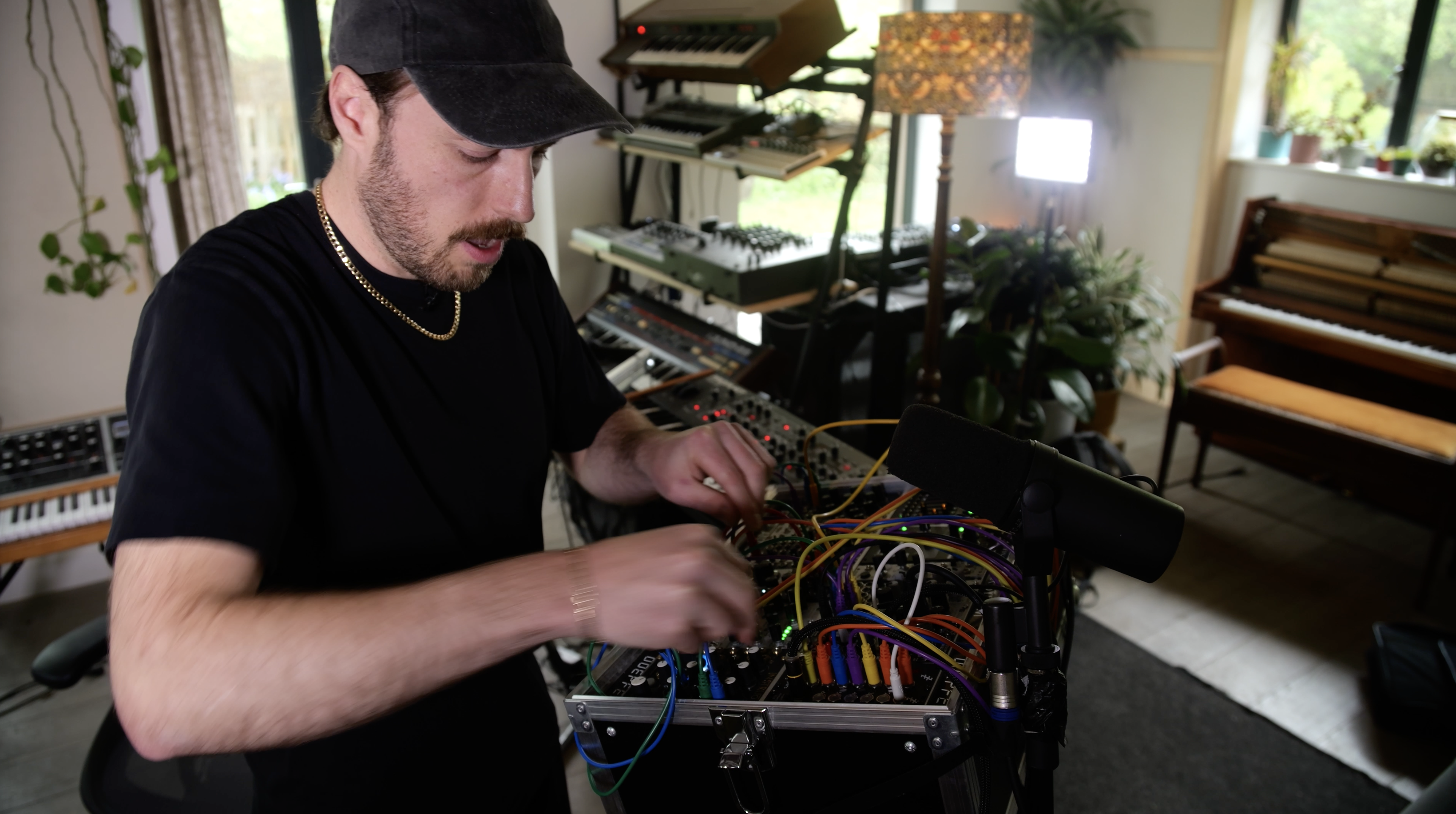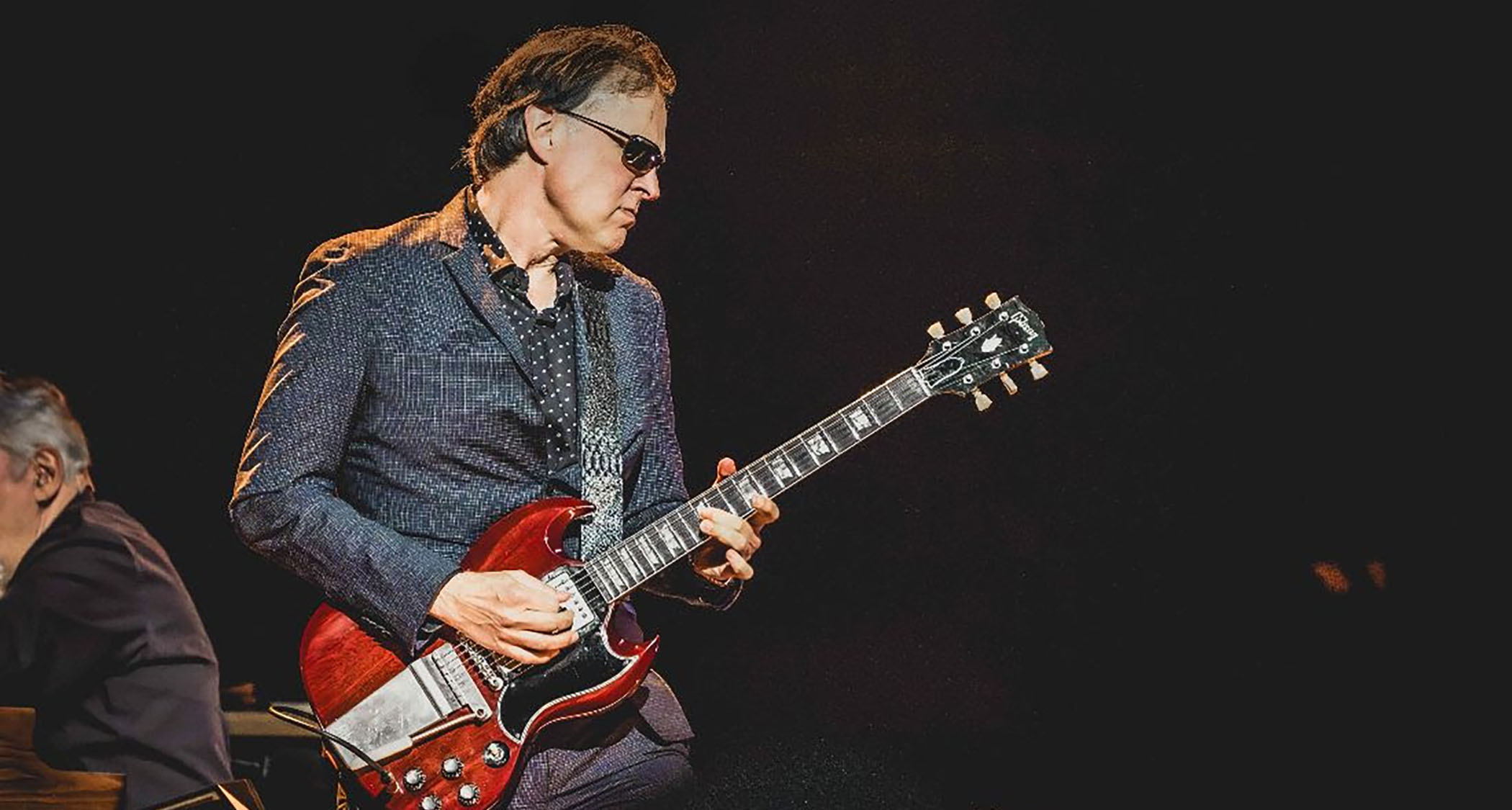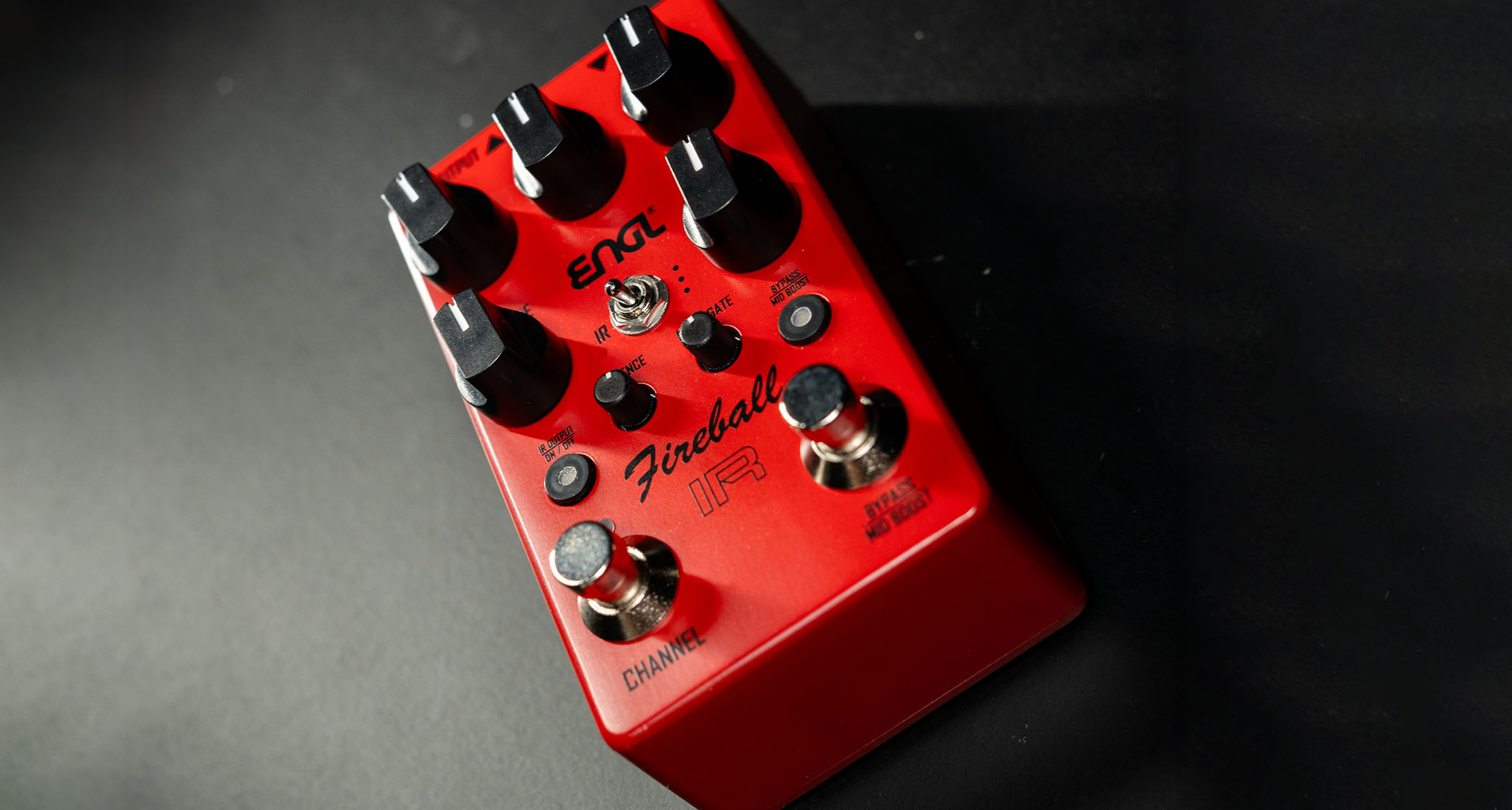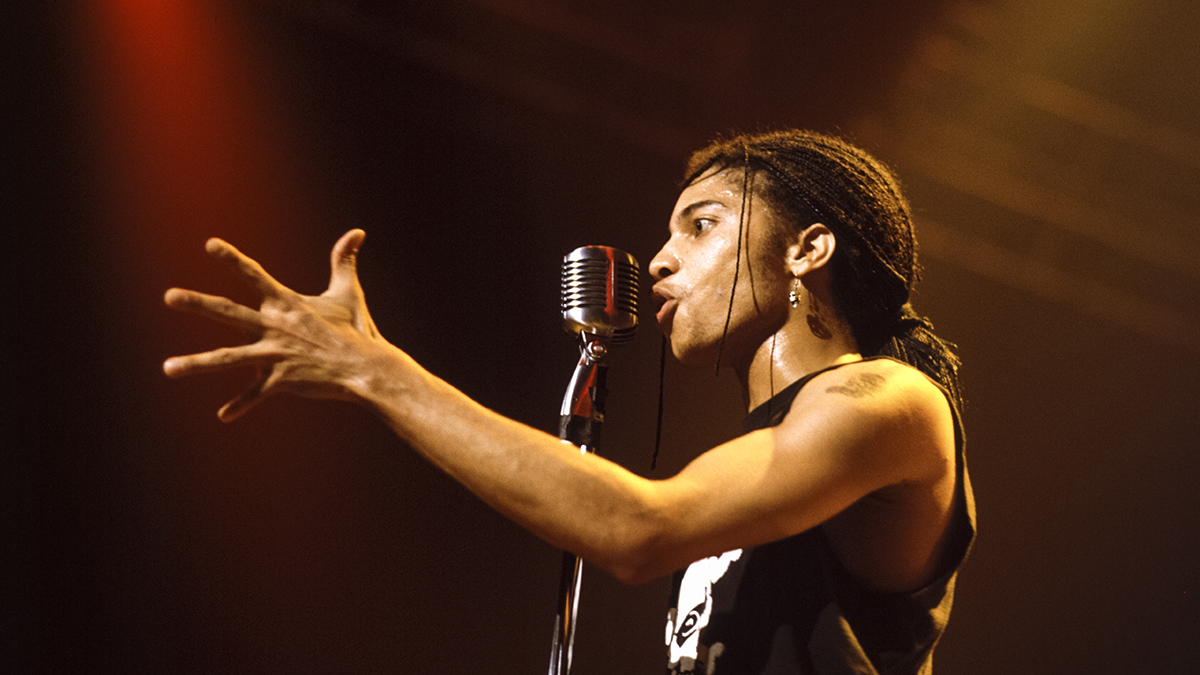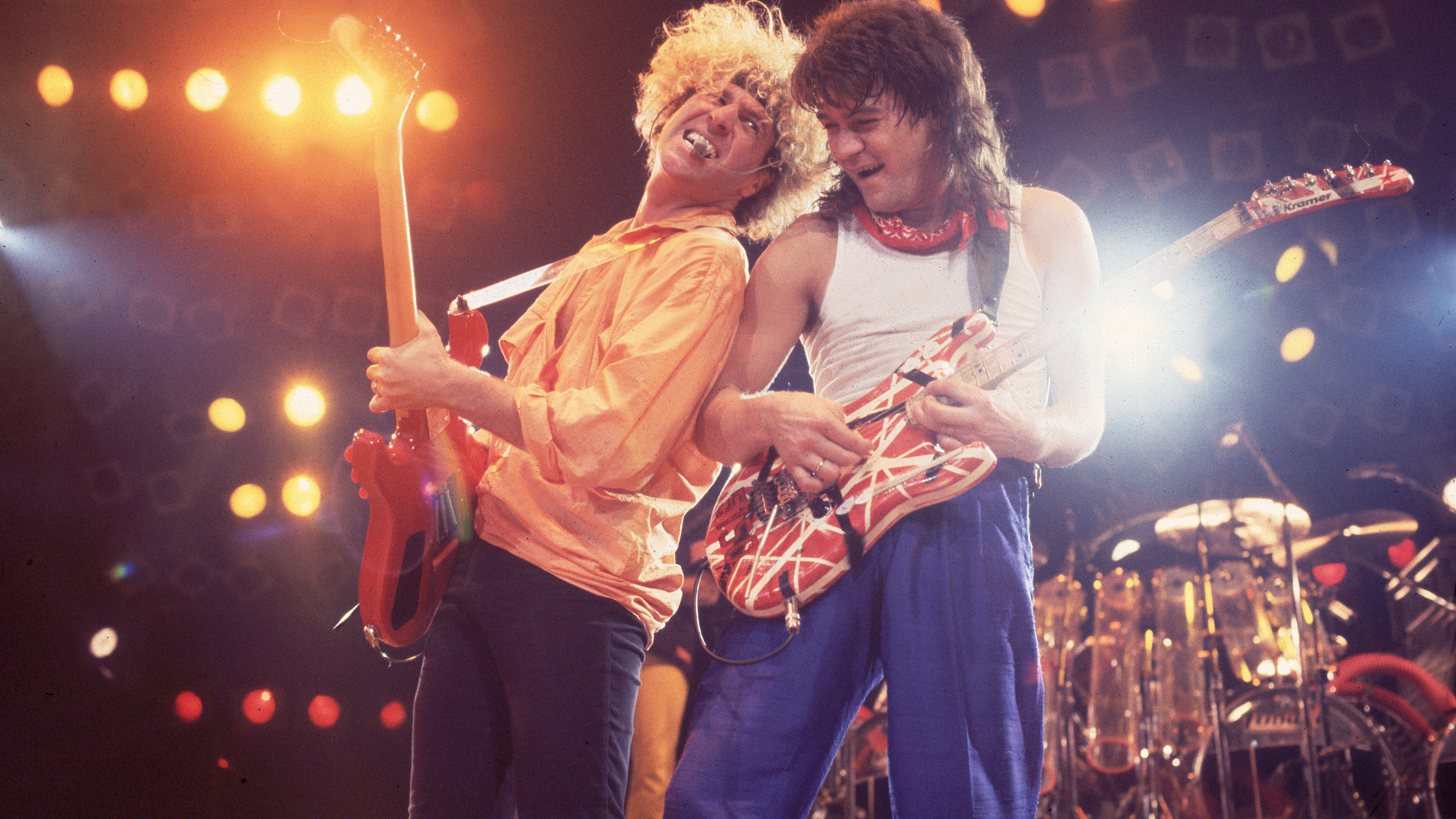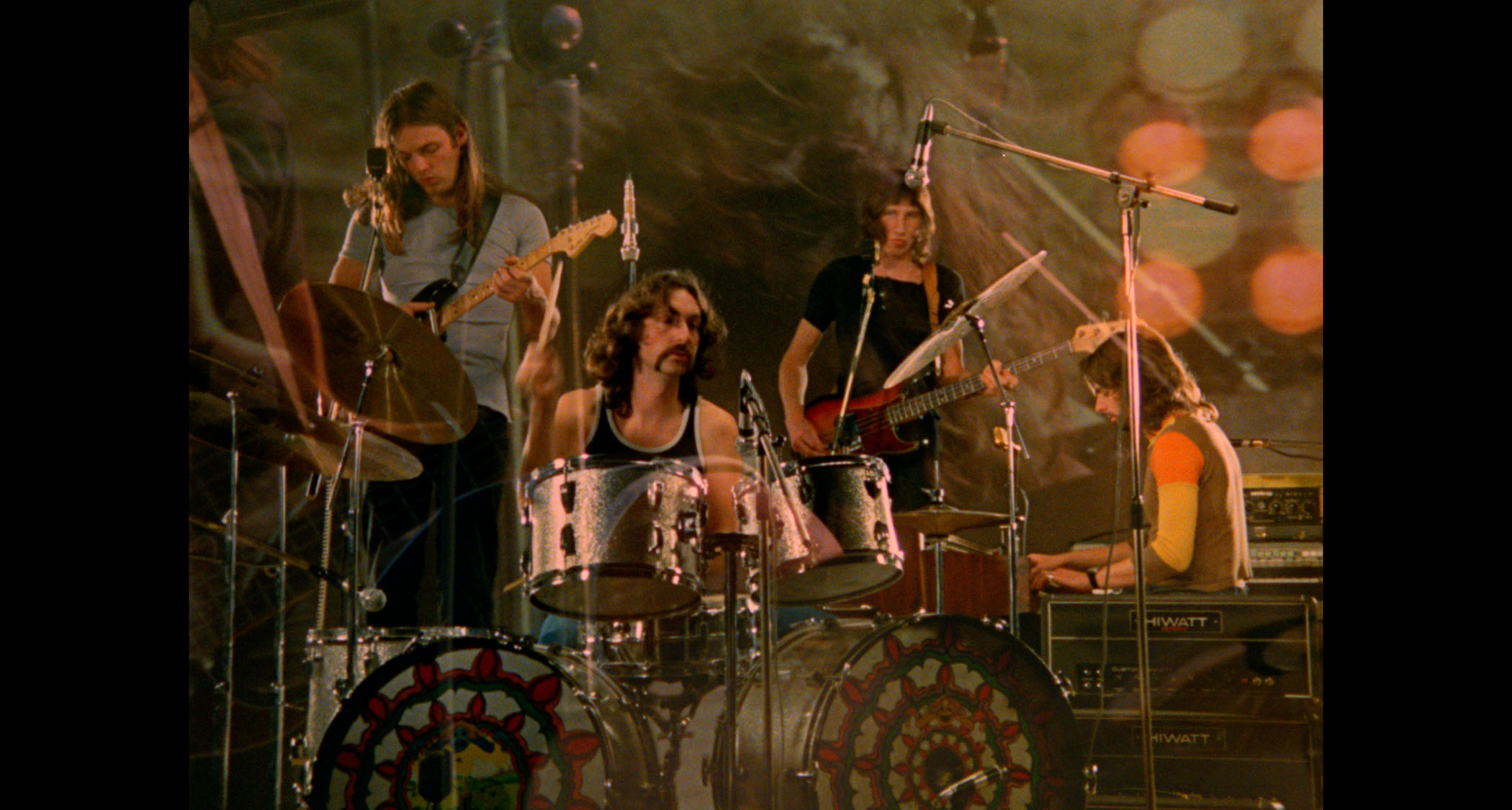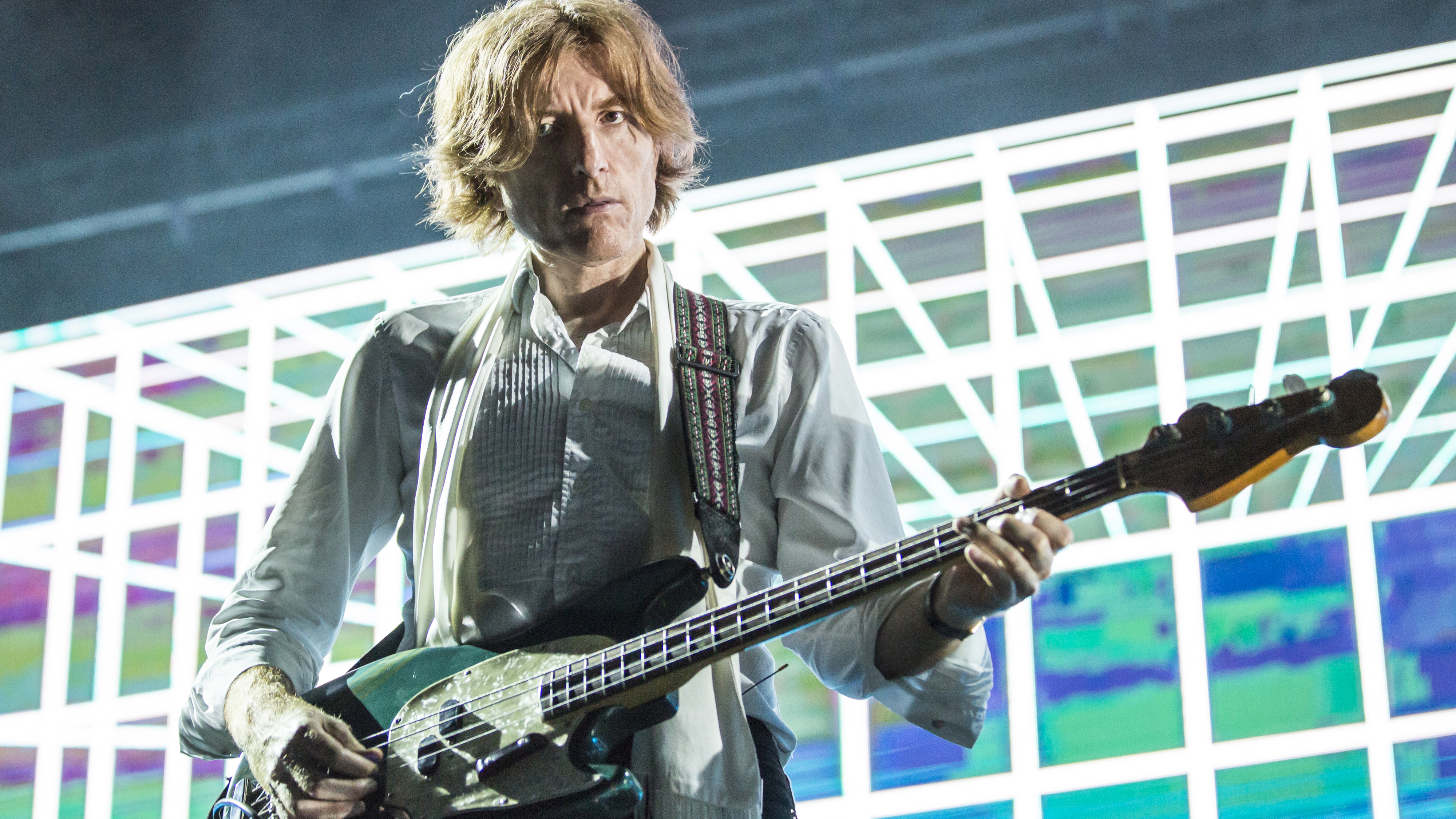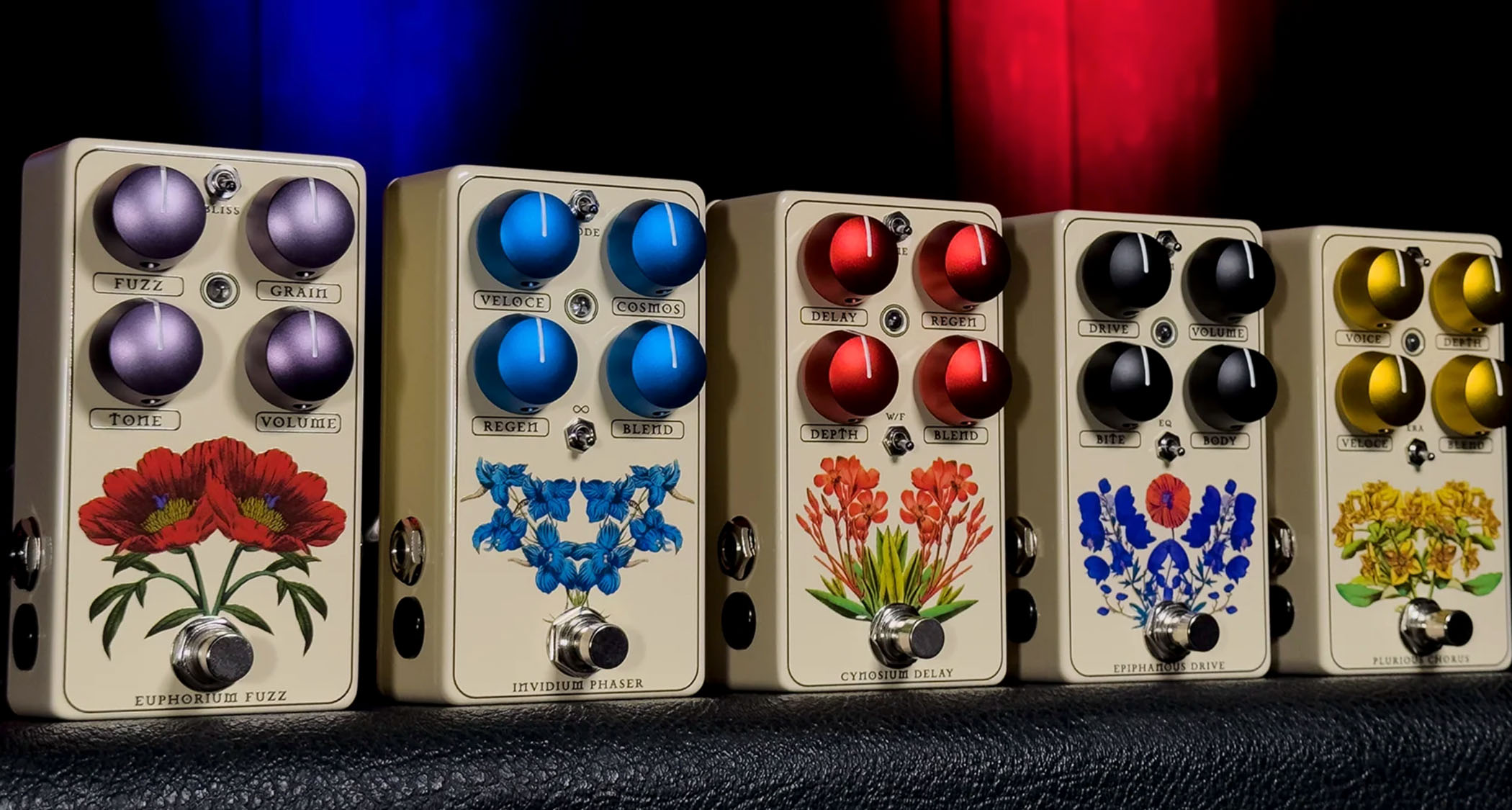“This is the holy trinity of synths - I don’t need anything more than these three”: Tourist invites us into his new home studio and shows us the trio of synths he kept after ditching most of his gear
We visited Tourist in the studio to find out more about how his new album Memory Morning was made

Every aspiring artist or bedroom beatmaker reading this will have made something they don’t like; it’s a near-universal experience among creatives of all kinds, but it’s not always an easy one to move past.
British electronic artist Will Phillips, better known as Tourist, has some sage advice for those disheartened by such a creative block. “You will make so much shit music, and that’s absolutely great,” he says, “because you’re never going to get to the good stuff unless you stop being hard on yourself”.
Arriving on the electronic music scene in the early ‘10s, Tourist has spent over a decade refining his sample-heavy brand of dreamy, atmospheric electronica, earning himself a Grammy Award in the process. His fifth studio album, Memory Morning, takes this sound to new heights inspired by shoegaze and psychedelic music.
We ventured out to the producer's home in London to check out his new studio space and find out more about how the album was made, and he was kind enough to open up his DAW and break down one of the project’s highlights, Ithaca.
What were you trying to achieve with your new studio space?
“I was looking to save the monthly rent in Hackney! [laughs] No, I'm joking. I built this studio over the last kind of six months. It's in my garden, which makes a massive difference. We redid our garden recently so it looks nice now - I'm a bit of a keen gardener, aside from being a musician. I wanted to meld the ability to be in a nice outdoor space with having a studio that doesn’t feel very studio-ish.
I'm not someone who needs everything. I just have a few things that I love
“I like natural light - basically, I wanted what I didn't have with my old studio. My old studio is a real cave in Hackney. I had a window, but it looked out on a brick wall, and it was grey. My entire studio was grey. So this has been a real build-your-dream-studio thing, and in terms of the space, I just wanted as much natural light as possible. And because I've been decanting all the stuff from my old studio to my new one, I've only taken the stuff that I really love and use.
Get the MusicRadar Newsletter
Want all the hottest music and gear news, reviews, deals, features and more, direct to your inbox? Sign up here.
“You've caught me at the end of the exercise of asking myself: okay, what is my desert island studio? That's where we found ourselves and it reveals that I'm quite boring, I suppose. [laughs] I'm not someone who needs everything. I just have a few things that I love. That’s how I view my studio. There's definitely a side of me that will be like, oh, I need to buy this now, but I keep that side in check. It's about making music, and my studio is like: cool, let's get to work.”
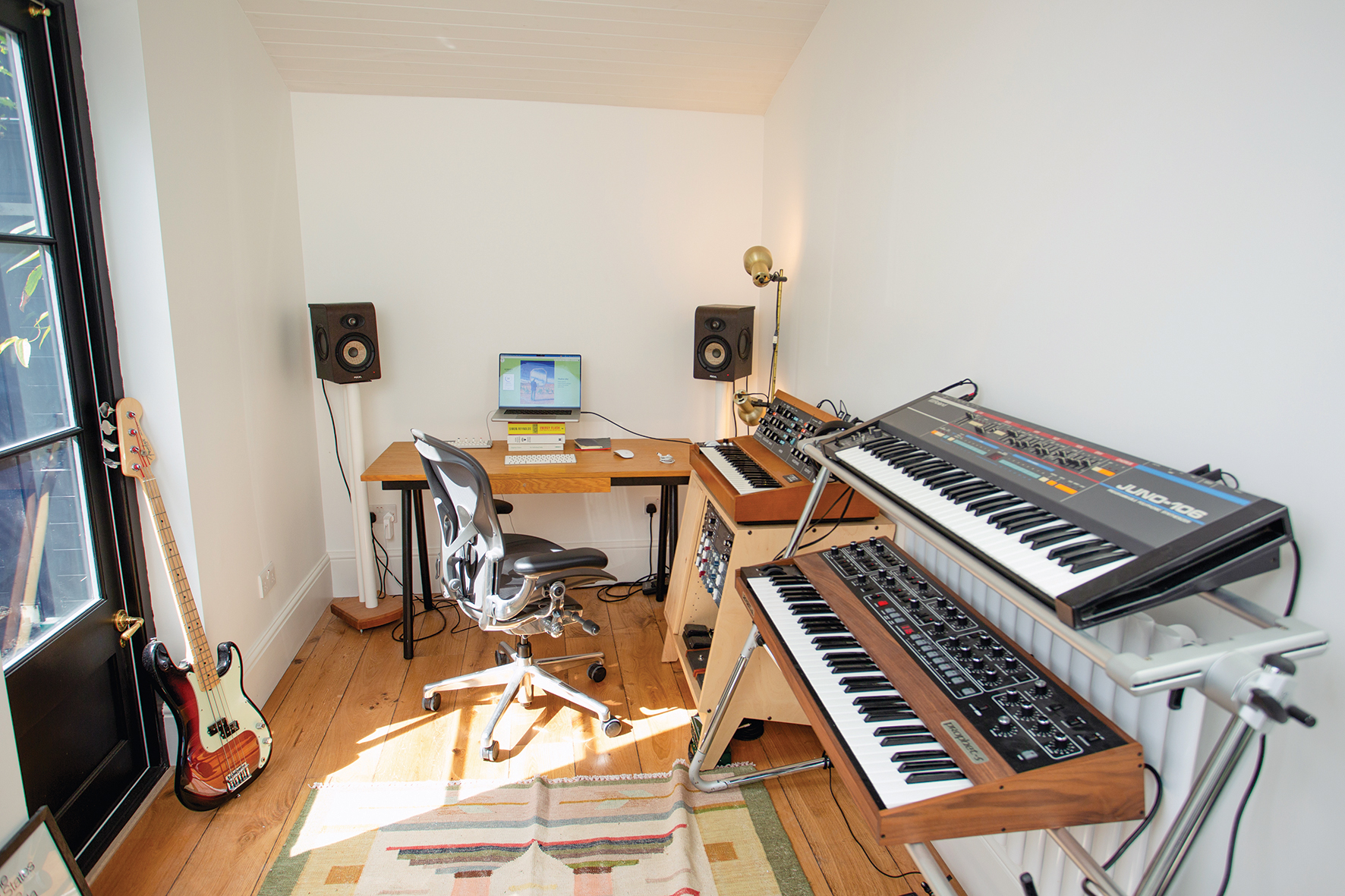
Talk us through the synths in your studio?
“As I was saying, I’ve just sold a Prophet-6, I’ve just sold a Moog Matriarch, I’ve sold loads of stuff that I just didn’t use, because I think I really love a knob per function. I love the immediacy of that, I love the ability to see the sound in the faders, to know there’s no menus behind anything. Some people love that, and I’m just not of that mind. I try to work really quickly and I want to be able to make sounds without any kind of hesitation.
“The Juno-106, that was the first ever expensive gear purchase for myself - I think I got it for 300 quid - back when I was 23 that was expensive but now that’s a bit of a bargain! Then I bought the Minimoog after I finished my first album. That thing I can’t go without now. Then the Prophet-5 I bought probably a year after this.
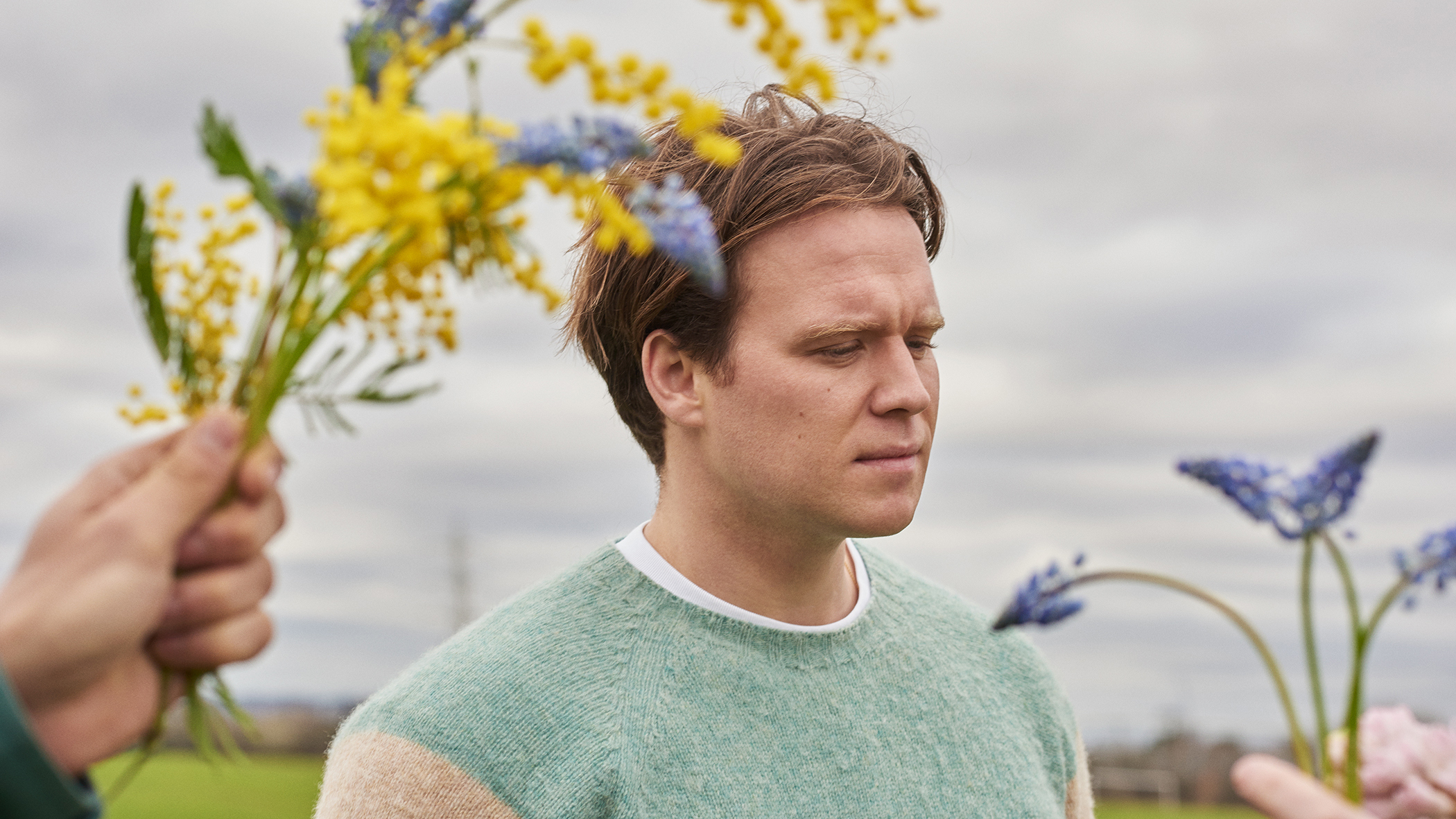
Tourist: “There’s very little you can’t do with a computer, an OP-1, a phone and an audio interface”
“They all serve completely different purposes and have completely different sounds. I don’t want any overlap in my synths. They all serve a specific purpose for me. If I need a bass sound, it’s the Moog or the Juno, if I need a mono pad sound, it’s the Moog, if I want a poly pad sound, it’s the Juno or the Prophet. They all feel different, they all have loads of different character.
“The Juno is out of action at the moment, it doesn’t work. It’s a battered, bruised thing. My first album was all Juno, my second album was the Juno and the Moog, and all the following albums were a mixture of all three. I never get bored of them. That, to me, is the holy trinity of synths - I don’t need anything more than those three. I’m obviously not doing FM synthesis, or anything like that, and I do have a modular synth, but it’s just a nightmare for me - I spend too much time messing with the synth and not making music.”
Do you use any software synths?
“Omnisphere, that’s the king of soft synths for me. I find it so inspiring. With soft synths, I tend to start with a preset and then mould it from there. I unashamedly do that. There’s a real purity around people not using presets and making everything from scratch. Go for it, do that, but I’ll start with a preset and deconstruct it to find what is giving it the characteristics it has. Maybe I’ll change certain parts and I’ll learn about it by doing it. Omnisphere is incredible for that.
“I use soft synths in a way where what I’ll do is l make something in MIDI, then convert it to audio and delete the soft synth from the project, and I’ll only have the residual audio. Then I’ll manipulate that, whether it’s reversing or time-stretching or putting it into a sampler. That’s where I get a lot of my manipulated synth sounds from.”
Do you have any favourite effects plugins?
“I’m a bit of a slave to the Universal Audio plugins. I think I have the whole thing, which I’m probably still paying off now. In terms of choruses and delays, I love the UAD stuff. Specifically there’s a Korg delay that I really love, the SDD-3000. I really love the EMT reverbs, the AKG reverbs, and then obviously the classic Lexicon reverbs as well. But my favourite plugin reverbs would be the Valhalla stuff. They’re so instant and quick and it just has a different feeling of space.
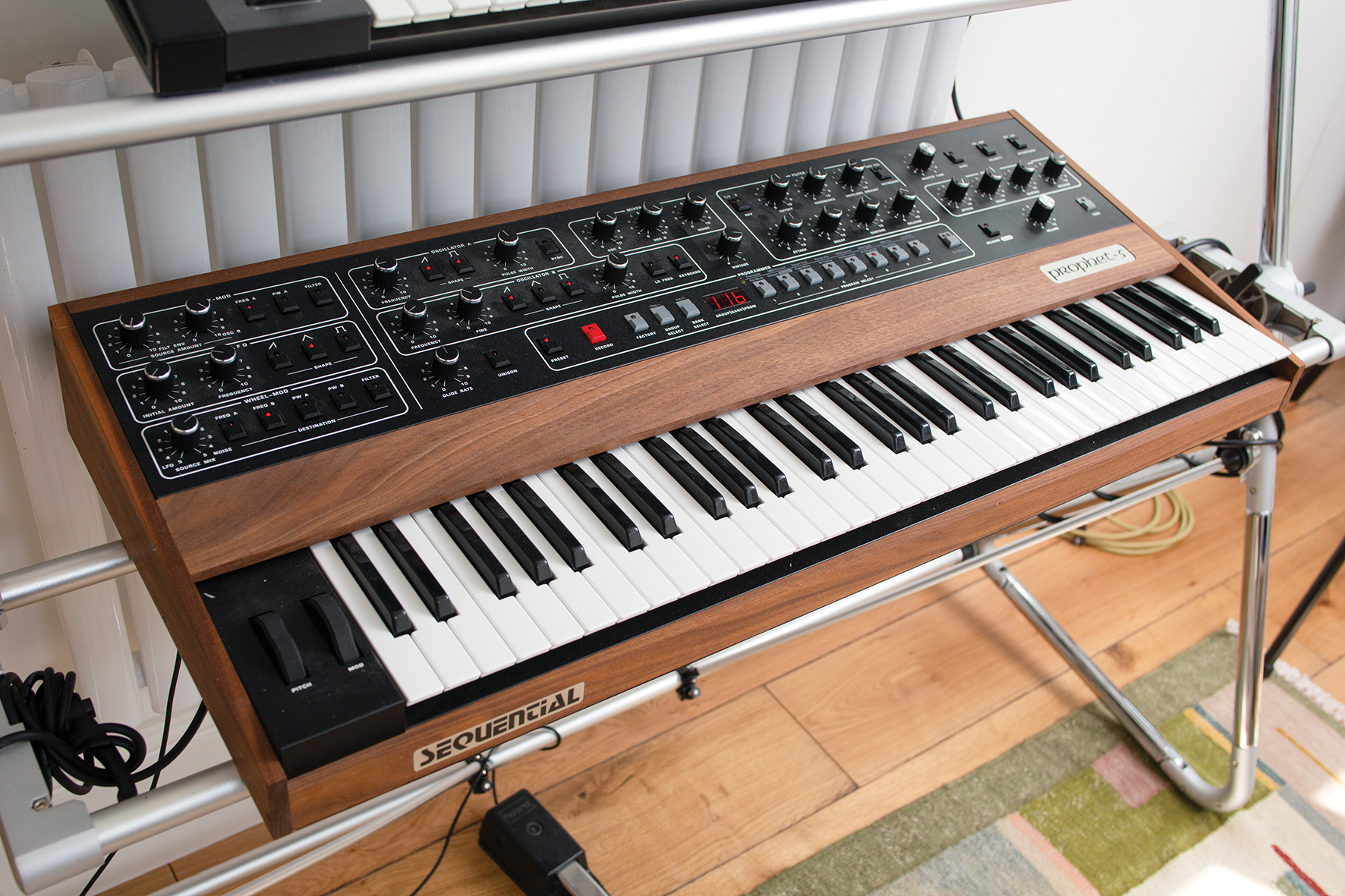
“I used to really love using Kontakt, but I’ve ended up getting really into the Quick Sampler in Logic. I love it, it’s become so good. They used to have the EXS24. Ableton’s always had amazing stock plugins, and Logic’s getting there. But I’ve never been able to jump from Logic to Ableton purely because there’s no scissor tool. I use that so much. There’s Cmd+E, where you move the playhead and do the keyboard shortcut, but I find I can’t chop up audio really quickly in Ableton. I find it incredible for all of my live stuff, and really good for time-stretching and quantizing audio and things like that, but I tend to live in Logic.”
Is there a dream piece of gear you’ve always wanted to own?
“The only thing I really want, as I get older, is just really good speakers. So I'd probably want to buy some ATCs, but they're rather expensive. I think that's probably the best investment for music, just being able to hear it properly. I say that, but my room has not even been treated yet, so it's probably a wasted expense.
“Maybe a CS-80, something like that - a really lovely old analogue synth. But I feel as though I don't get so caught up in that stuff, and I don't know how important it is. I think what's more important is having more of a mature attitude to what can make music. It comes from our brains, so I think nurturing your brain and nurturing the way you think and nurturing your creative ambitions is so much more important than spending money on gear.
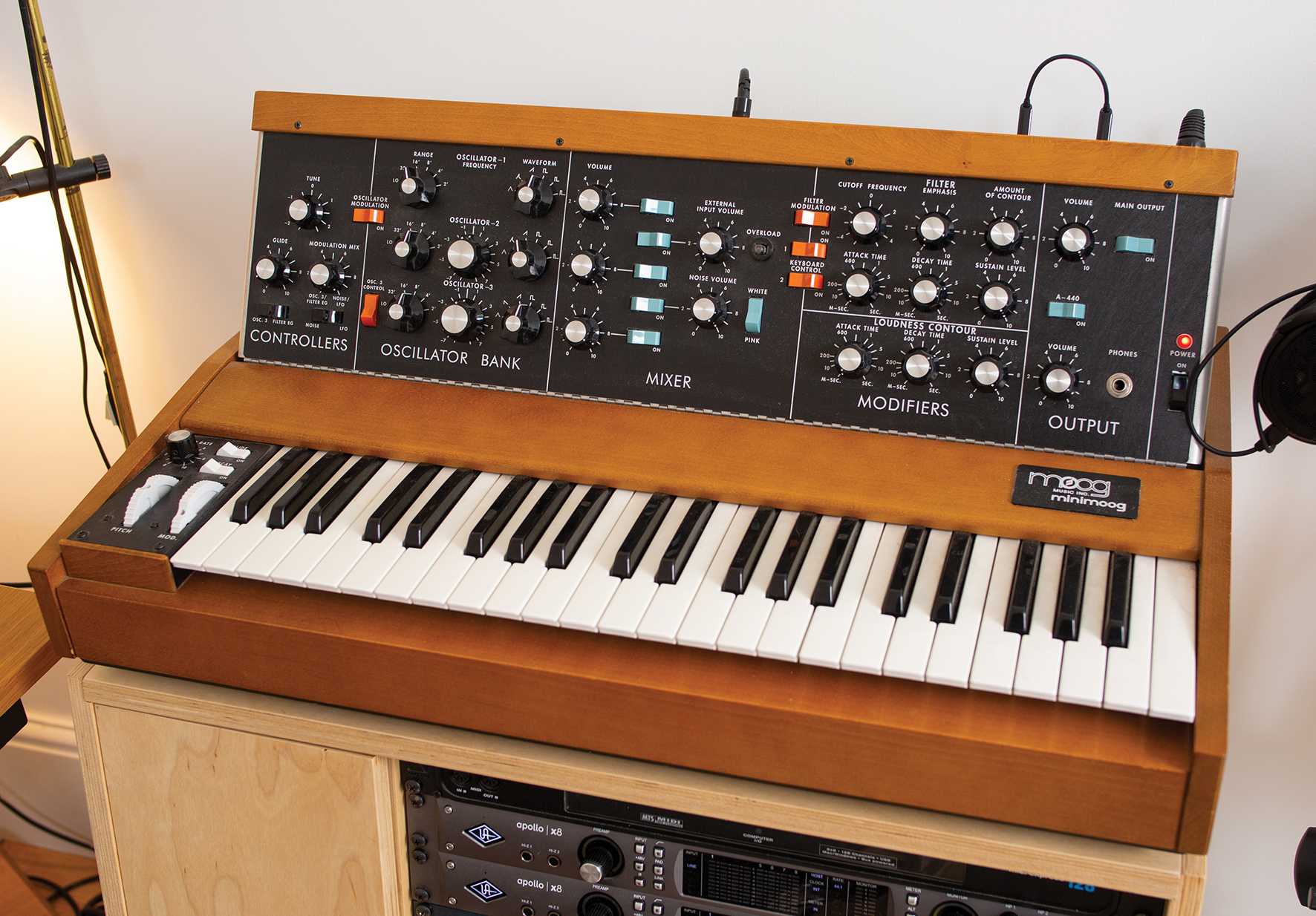
“People might say, he’s got these lovely synths - but I didn't used to have these lovely synths and I arguably made probably purer music when I wasn't thinking about things because I had less stuff. I'm always of the mind of: get a Macbook and a MIDI controller, learn to play the piano and go for that. That is the most inspiring setup; you can make unbelievably good music on that. There's no reason you couldn't. I think kids know that nowadays, people embrace that.
“The stuff that I have is the stuff that over 15 years I've acquired and I just don't want to get rid of. I'd love a really nice piano, an upright - I don’t think that we have enough room in here. Maybe if I got rid of some stuff or moved things around, I probably could do that. I love playing the piano. I’d love a really nice acoustic guitar because I love playing guitar but I can't really do it very well.”
Do you typically start a track the same way each time?
“If you start from a template, you’re immediately deciding so many parameters. You should start at a different point each time - have that as your template. I’ve always said that one of the things I love doing is sampling something I hate - then I’m forced to try and make something that sees the good in the root material. That’s a nice trick, so to speak. Maybe you’ll find a texture you like, or maybe you’ll find a way of working that’ll inspire you.
There are so many different ways that you can do things, but I really try to start in a different place each time
“Making a track out of presets, but try to make it not sound like a preset, that could be super interesting. Making a track that uses no presets, or doesn't even use a DAW. There are so many different ways that you can do things, but I really try to start in a different place each time. Wherever I’ve been, I say okay: now I’m going to do this one.
“It’s quite a chaotic way of working - I think it can annoy people when I’m in the studio with them. I’m like, don’t do what you think you should do, do the exact opposite and see if there’s something that you rub up against that will create something new.”
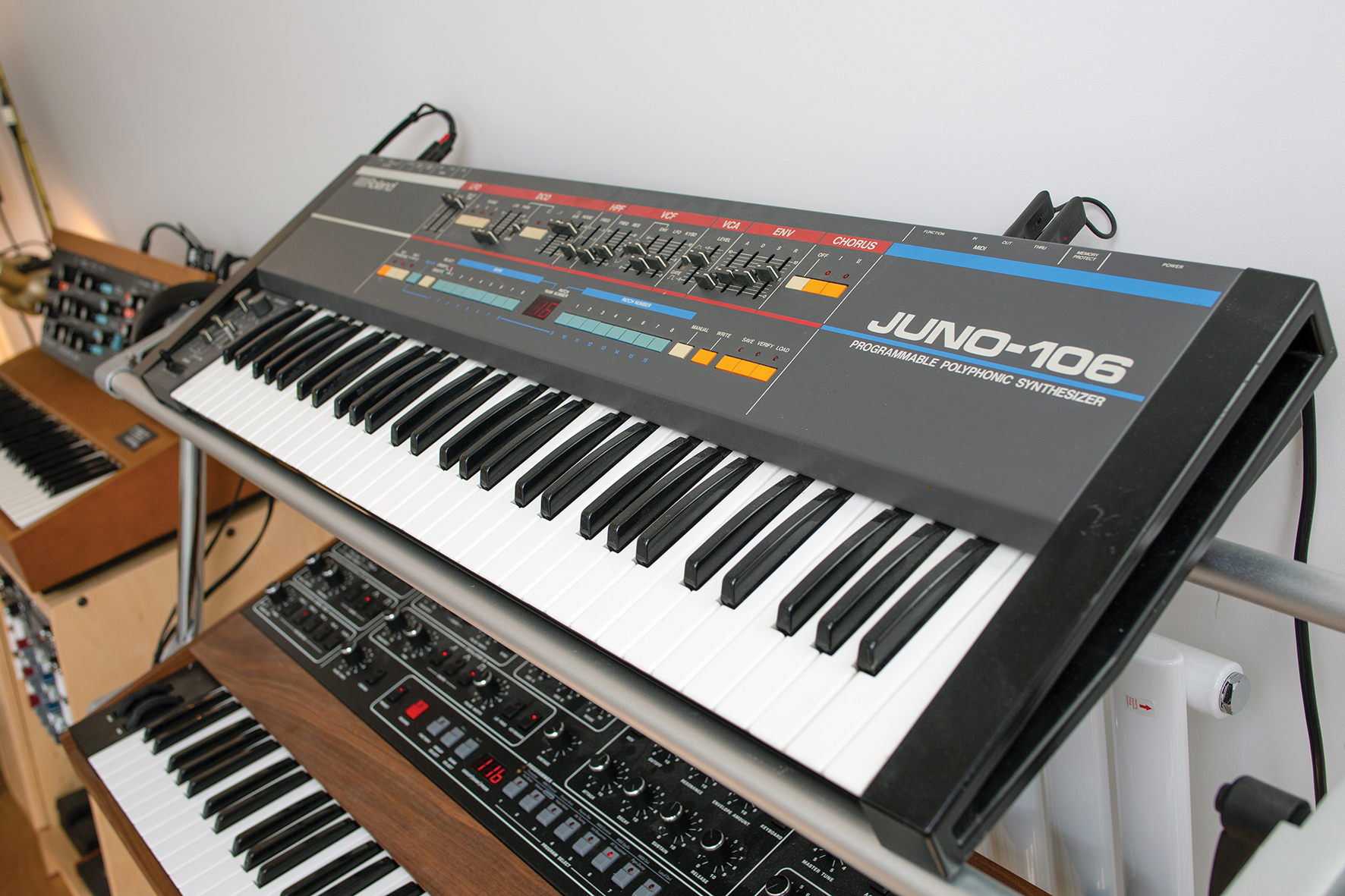
Do you have any advice for aspiring artists?
“Don’t worry about it. It’s always going to be fine. If you make a crap piece of music, you’ve made a piece of music. You will make so much shit music, and that’s absolutely great, because you’re never going to get to the good stuff unless you stop being hard on yourself, and allow yourself to make things that you might not like. You’ve got to get rid of the demons, you’ve got to get them out.
Own what you do. You are the most important person in your creative journey - don’t try to be someone else
“My friend always said this to me, he said just get them out, get the ideas out, and then look back with different eyes, or ears, in a few months, and the really good ones will stand out to you. Enjoy the creative process, don’t worry about making bad things. Don’t worry about your career. Don’t worry about anyone else. Own what you do. You are the most important person in your creative journey - don’t try to be someone else.
"Don't be too influenced by micro-trends. You may end up maybe being successful in the short term, but truly transcending all of that micro stuff will let you make truly interesting work that will be able to stand at any generation, at any point, and will be something that's much deeper. Never be ashamed of making something that doesn't fit in at that moment.
“One of my most popular albums, called Wild, and a lot of people didn't really discover that until after the pandemic. It sat there, not really doing much, and then all of a sudden, it became really personal to people. So just follow your heart - I know that's corny, but do. Be your weird self."
Tourist’s Memory Morning is out now on Monday Records.



I'm MusicRadar's Tech Editor, working across everything from product news and gear-focused features to artist interviews and tech tutorials. I love electronic music and I'm perpetually fascinated by the tools we use to make it. When I'm not behind my laptop keyboard, you'll probably find me behind a MIDI keyboard, carefully crafting the beginnings of another project that I'll ultimately abandon to the creative graveyard that is my overstuffed hard drive.
“If they were ever going to do the story of Nero, probably the most decadent of all the emperors, they would have to use Roy Thomas Baker”: Tributes to the legendary producer of Queen, Alice Cooper, Journey and more, who has died aged 78
“A fabulous trip through all eight songs by 24 wonderful artists and remixers... way beyond anything I could have hoped for”: Robert Smith announces new Cure remix album

